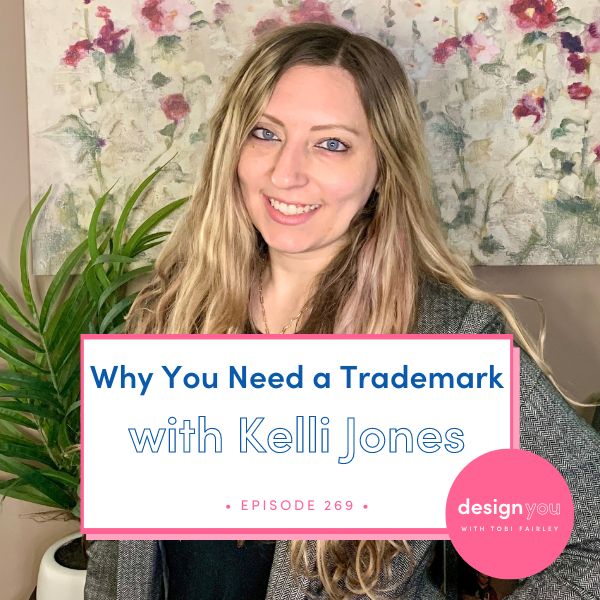
Is your brand name secure? Entrepreneurs often think that because they have an LLC, their brand is protected. However, continuing to build a brand on a name you don’t actually own could cost you a fortune, or even force you into an expensive rebrand. So, to help you avoid this happening to you, I’m speaking to trademark lawyer Kelli Jones on today’s show.
Kelli Jones is a virtual lawyer for entrepreneurs and business owners, specializing in contracts and trademarks. She started her firm during the pandemic and her main goal is to help make the legal side of owning a business a little less boring while encouraging legal protection to save her clients time, money, and stress.
Tune in this week to discover how a trademark will protect the future of your brand. Kelli is discussing how trademarks work, how to see the strength of the brand name you’re trying to trademark, and the three questions that will help you decide whether you need to trademark your brand soon before it’s too late.
My new e-commerce shop is launching on June 1st 2023! Follow Fairley Fancy on TikTok and Instagram to follow along with the launch, stay up to date with details of giveaways, and all the good stuff.
If you’re an interior designer or creative looking to up-level your business, I have something for you. It’s my Build a Better Business Guide. Burnout, undercharging and the feast and famine cycle are rampant in the design industry but there’s a better way to run your business. Click here to get my manifesto and guide that will have you on your way to a business with more ease, more joy, and more money.





